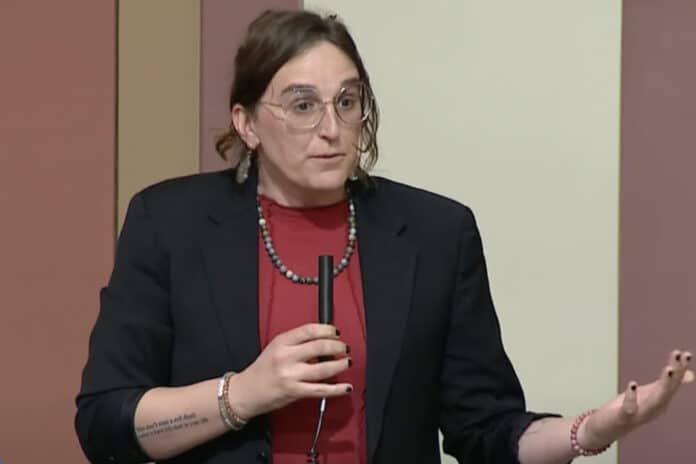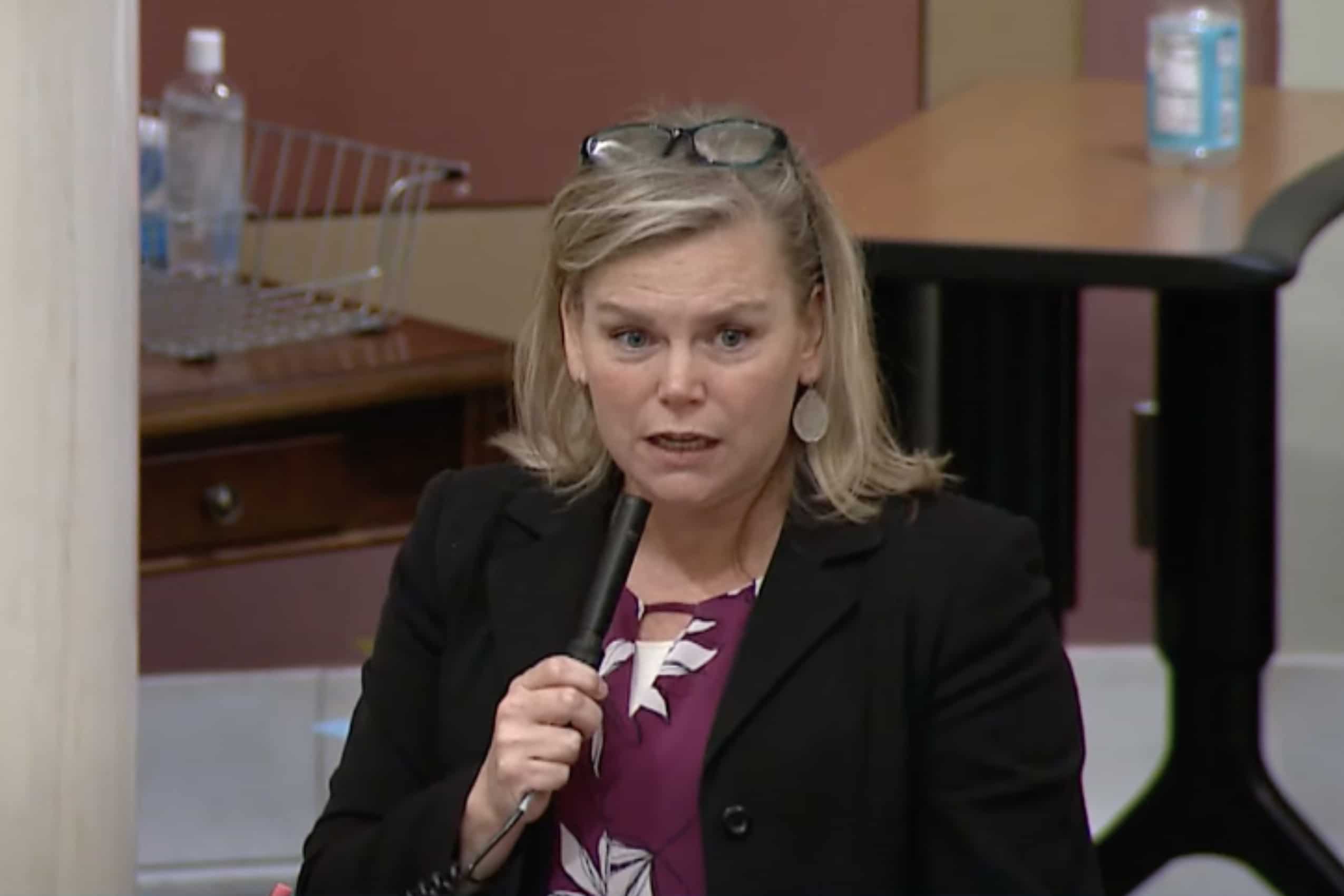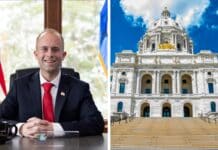
Health care insurance companies that do business in Minnesota would be required to cover “gender-affirming care” for children and adolescents under a bill that passed in the state House on Wednesday.
All 70 DFL House members voted to pass the omnibus commerce bill, which contains dozens of new consumer protection measures, including the provision authored by Rep. Leigh Finke, DFL-St. Paul, that would prohibit “a health plan that covers physical or mental health services from excluding coverage for medically necessary gender-affirming care.”
The provision defines “gender-affirming care” as “all medical, surgical, counseling, or referral services, including telehealth services, that an individual may receive to support and affirm the individual’s gender identity or gender expression and that are legal under the laws of this state.”
The version of the commerce bill the Senate passed earlier this month does not contain the “gender-affirming” health care coverage mandate. A conference committee between the House and the Senate is being formed to work out differences between the two chambers.
Finke’s legislation contains no language regarding age, which troubled Rep. Anne Neu Brindley, R-North Branch, who offered an amendment that limits the mandated coverage for “gender-affirming care” to individuals age 21 and older.
“This amendment simply says that we are removing the medical procedures from that mandate,” Neu Brindley said. “There are long-term permanent consequences of these decisions. And this body has acknowledged that kids do not have the brain development to deal with things like smoking, or smoking pot, or drinking alcohol or any number of things.

“So certainly it should be our job as adults to make sure we are protecting them when we are talking about very real, permanent changes” caused by sex reassignment surgeries, puberty blockers and hormone replacement therapy, Neu Brindley said.
Finke, a first-term lawmaker, disputed that claim, arguing that “trans people are overwhelmingly bettered by gender-affirming care” and that parents should be the ones to help minors decide if, when and what type of care they should receive.
“If gender-affirming care is health care, then it is not up to us to determine at what age someone should have access to their health care,” Finke said. “We do not do this for other forms of health care. We say families and doctors make decisions that are best for the people that they love, and we leave them to it.
“Our families are in charge of who we are. We make decisions together and we move forward,” Finke continued.
Rep. Danny Nadeau contended Neu Brindley’s age restriction amendment was not about banning “gender-affirming care.” He criticized Finke’s provision for lacking a balance between reasonable access and a standard of care.
“This underlying bill has few guardrails, and it has zero restrictions,” Nadeau said. “And this amendment merely reserves the medical and surgical components to adults. To people over 21 years of age.”
Just one Democrat, Rep. Dave Lislegard of Aurora, supported Neu Brindley’s amendment, which failed on a 68-62 vote.
Just prior to the vote, Rep. Brion Curran, DFL-Vadnais Heights, encouraged legislators to oppose the amendment, arguing that children and adolescents who identify as transgender or have gender identity issues have higher rates of suicide and depression, “and a lack of (health) care, lack of ability to become who they are, only increases the likelihood that (those) kids may not live to see adulthood.”
The House did unanimously approve an amendment that would permit exemptions for employers who have religious objections to the coverage mandate if that exempt organization notifies employees as part of the hiring process and at least 30 days before an employee enrolls in the plan.
Hank Long
Hank Long is a journalism and communications professional whose writing career includes coverage of the Minnesota legislature, city and county governments and the commercial real estate industry. Hank received his undergraduate degree at the University of Minnesota, where he studied journalism, and his law degree at the University of St. Thomas. The Minnesota native lives in the Twin Cities with his wife and four children. His dream is to be around when the Vikings win the Super Bowl.











